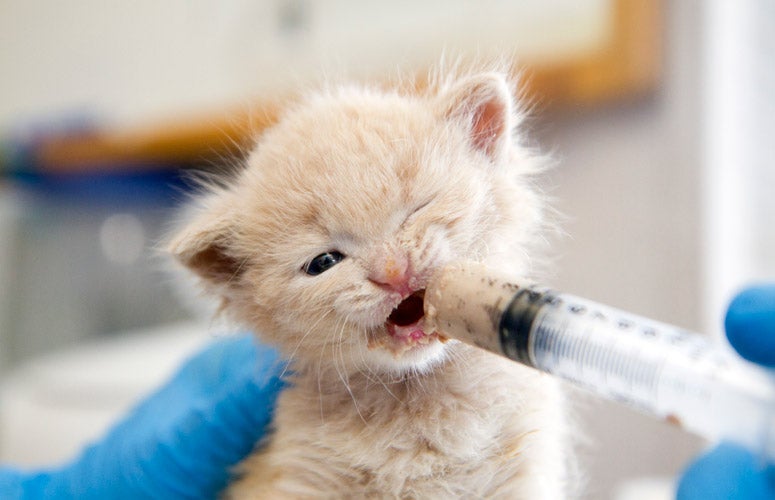
Baby Kitten Care: A Comprehensive Guide to Nurturing Your Feline Companion
Bringing a baby kitten into your home is an exciting and rewarding experience. However, it also comes with a significant responsibility to provide proper care and ensure their well-being. This comprehensive guide will provide you with all the essential information you need to know about baby kitten care, from feeding and grooming to socialization and health maintenance.
Feeding
- Newborn Kittens (0-4 weeks): Kittens under four weeks old are entirely dependent on their mother’s milk for nourishment. If the mother is not available, you will need to bottle-feed the kittens with a kitten-specific formula. Feed them every two to three hours, around the clock.
- Weaning (4-8 weeks): Around four weeks of age, kittens can start transitioning to solid food. Gradually introduce them to wet kitten food by mixing it with formula. By eight weeks, they should be fully weaned and eating solid food three to four times a day.
- Kitten Food: Choose high-quality kitten food that is specifically formulated for their nutritional needs. Avoid adult cat food, as it does not contain the necessary nutrients for growing kittens.
- Water: Provide fresh, clean water at all times.
Grooming
- Bathing: Kittens do not need frequent baths. However, if they get dirty, you can gently bathe them with warm water and a mild kitten shampoo.
- Brushing: Start brushing your kitten’s fur regularly to prevent mats and tangles. Use a soft-bristled brush and be gentle, especially around their face and belly.
- Nail Trimming: Trim your kitten’s nails regularly to prevent them from getting too long and sharp. Use a sharp nail clipper and be careful not to cut into the quick.
Litter Box Training
- Introduction: Place the litter box in a quiet, easily accessible location.
- Show the Kitten: Gently place the kitten in the litter box after each meal and nap.
- Patience: It may take some time for the kitten to learn to use the litter box. Be patient and don’t punish them for accidents.
- Cleanliness: Keep the litter box clean by scooping it daily and changing the litter regularly.
Socialization
- Handling: Handle your kitten frequently from a young age to get them used to being touched and held.
- Exposure: Expose your kitten to different people, places, and sounds to help them become well-rounded and confident.
- Playtime: Engage in regular playtime with your kitten using interactive toys to stimulate their physical and mental development.
Health Maintenance
- Vaccinations: Kittens need a series of vaccinations to protect them from common feline diseases. Consult with your veterinarian to determine the appropriate vaccination schedule.
- Deworming: Kittens should be dewormed regularly to prevent intestinal parasites.
- Flea and Tick Control: Use kitten-safe flea and tick prevention products to protect your kitten from these pests.
- Spaying/Neutering: Spaying or neutering your kitten is essential for preventing unwanted litters and certain health problems.
- Regular Checkups: Schedule regular checkups with your veterinarian to monitor your kitten’s health and address any concerns.
Special Considerations
- Orphaned Kittens: If you find an orphaned kitten, it is crucial to provide immediate care. Contact a veterinarian or animal shelter for guidance.
- Sick Kittens: If your kitten shows any signs of illness, such as lethargy, vomiting, or diarrhea, seek veterinary attention promptly.
- Bottle-Feeding: Bottle-feeding kittens requires special care and attention. Follow the instructions provided by your veterinarian carefully.
- Litterless Kittens: Kittens that have been separated from their mother may have difficulty with litter box training. Be patient and provide extra guidance.
Conclusion
Baby kitten care is a rewarding but demanding task. By following the comprehensive guidelines outlined in this article, you can provide your feline companion with the best possible care and ensure their health, happiness, and well-being for years to come. Remember to consult with your veterinarian regularly for professional advice and support throughout your kitten’s life.
